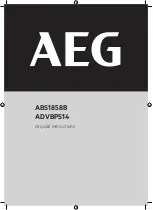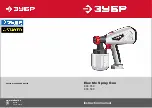
To put the outer spray sections back into the transport
cradle, lower the spray section(s) to the spray position
and then raise the spray section(s) back to the
transport position. Make sure that the lift cylinders are
fully retracted to prevent damaging the actuator rod.
Taking Proper Turf
Care Precautions while
Operating in Stationary
Modes
Important:
Under some conditions, heat from the
engine, radiator, and muffler can damage grass
when operating the sprayer in a stationary mode.
Stationary modes include tank agitation, hand
spraying with a spray gun, or using a walking
boom.
Use the following precautions:
•
Avoid
stationary spraying when conditions are
very hot and/or dry, as turf can be more stressed
during these periods.
•
Avoid
parking on the turf while stationary spraying.
Park on a cart path whenever possible.
•
Minimize
the amount of time the machine is left
running over any particular area of turf. Both time
and temperature affect how much the grass may
be damaged.
•
Set the engine speed as low as possible
to
achieve the desired pressure and flow. This
minimizes the heat generated and the air velocity
from the cooling fan.
•
Allow heat to escape
upward from the engine
compartment by raising the seat assemblies during
stationary operation rather than being forced out
under the vehicle.
Spraying Tips
•
Do not overlap areas that you have previously
sprayed.
•
Watch for plugged nozzles. Replace all worn or
damaged nozzles.
•
Use the master section switch to stop the spray
flow before stopping the sprayer. Once it stops,
use the engine-throttle control to hold the engine
speed up to keep the agitation running.
•
You will obtain better results if the sprayer is
moving when you turn the spray sections on.
Unclogging a Nozzle
If a nozzle becomes clogged while you are spraying,
clean the nozzle as follows:
1.
Stop the sprayer on a level surface, shut off the
engine, and engage the parking brake.
2.
Set the master section switch to the O
FF
position
and then set the sprayer-pump switch to the
O
FF
position.
3.
Remove the clogged nozzle and clean it using a
spray bottle of water and a toothbrush.
4.
Install the nozzle.
After Operation
After Operation Safety
General Safety
•
Before you leave the operator’s position, do the
following:
– Park the machine on a level surface.
– Engage the parking brake.
– Shut off the engine and remove the key (if
equipped).
– Wait for all movement to stop.
•
After you finish operating the machine for the day,
wash off all chemical residue from the outside
of the machine and ensure that the system has
been neutralized and triple rinsed according to the
recommendations of the chemical manufacturer(s)
and that all the valves have been cycled 3 times;
refer to Chemical Safety.
•
Allow the engine to cool before storing the machine
in any enclosure.
•
Never store the machine or fuel container where
there is an open flame, spark, or pilot light, such
as on a water heater or other appliance.
•
Keep all parts of the machine in good working
condition and all hardware tightened.
•
Replace all worn, damaged, or missing decals.
Cleaning the Sprayer
Wash the machine as needed using water alone
or with a mild detergent. You may use a rag when
washing the machine.
Important:
Do not use brackish or reclaimed
water to clean the machine.
Note:
Do not use power-washing equipment to wash
the machine. Power-washing equipment may damage
the electrical system, loosen important decals, or
wash away necessary grease at friction points. Avoid
excessive use of water near the control panel, engine,
and battery.
40
















































